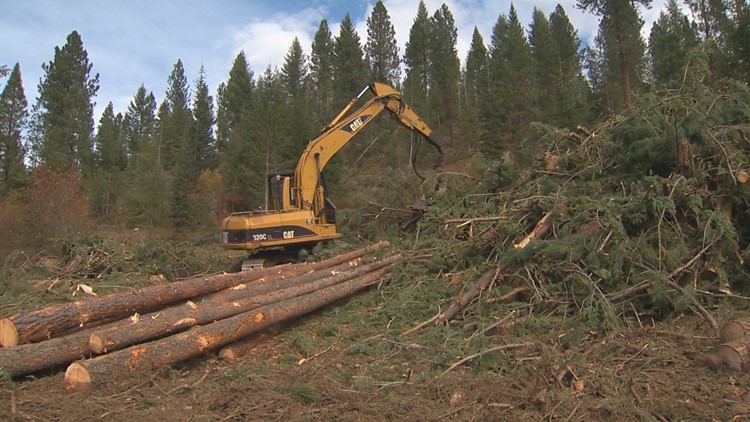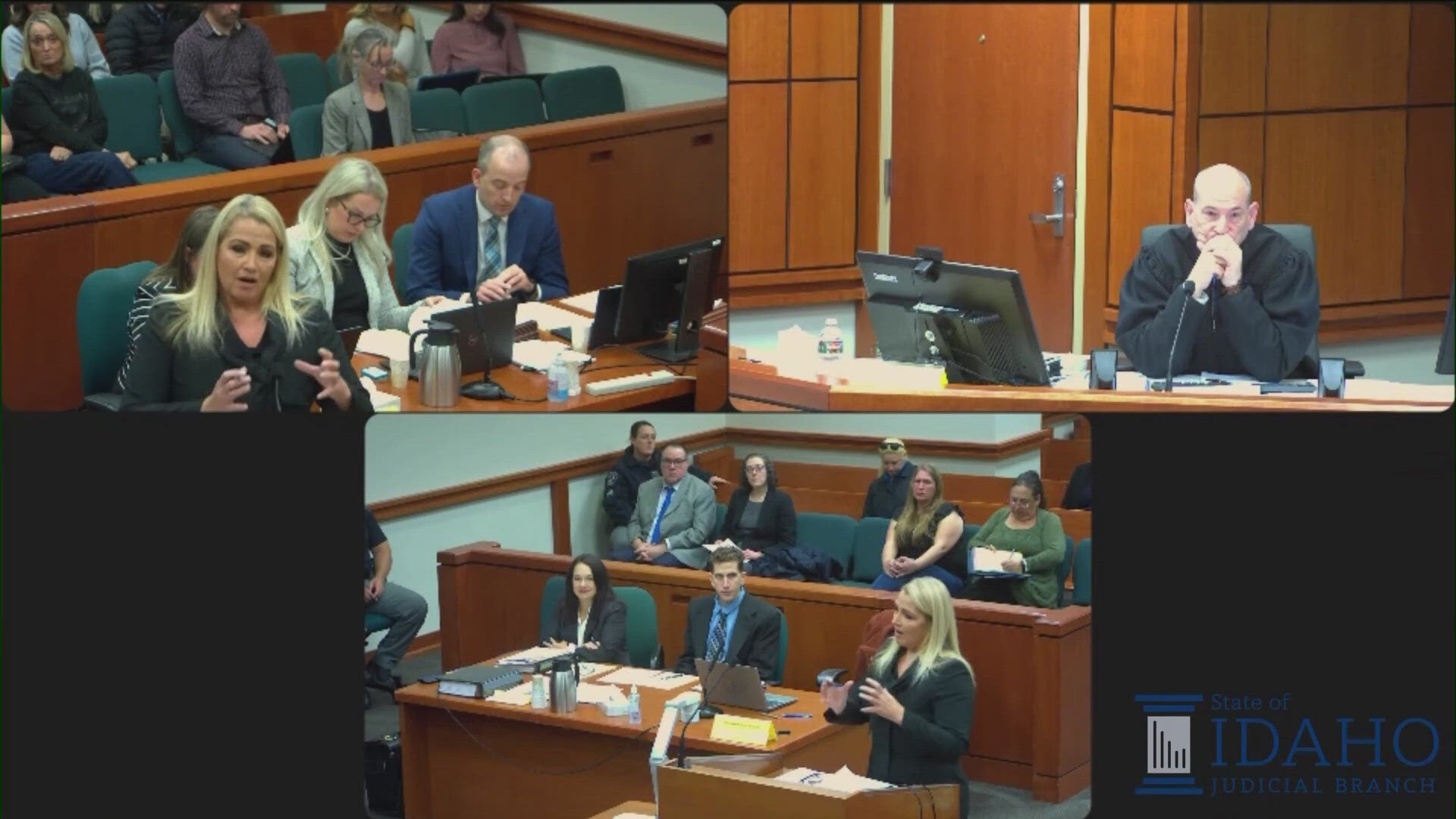BOISE, Idaho — A conservation group is suing the U.S. Forest Service to stop a joint state and federal forest restoration project in northern Idaho the group says is clearcutting in one of the largest remaining old-growth cedar, hemlock and grand fir forests in the U.S. West.
The Alliance for the Wild Rockies filed the lawsuit last week in U.S. District Court to stop the 3.6-square-mile project about 25 miles north of the town of Priest River.
The project in the Idaho Panhandle National Forest is a collaborative effort between the U.S. Forest Service and Idaho under a program called the Good Neighbor Authority.
"Clearcutting is not forest restoration," said Mike Garrity, executive director of the Alliance for the Wild Rockies. "This area also has the largest concentration of ancient cedar stands in northern Idaho."
The group said most of the project involves commercial logging, and nearly half of the project is clearcutting.
The U.S. Department of Justice, which defends federal agencies in lawsuits, didn't immediately respond to an inquiry from The Associated Press.
The Idaho Department of Lands partners with the Forest Service through the Good Neighbor Authority. The program allows state participation in federal timber sales to pay for restoration work on private, state and federal lands.
The state agency's spokeswoman, Sharla Arledge, said Wednesday that the agency had no comment.
The Forest Service approved the project in October using a categorical exclusion under the Healthy Forests Restoration Act, meaning some environmental reviews weren't needed.
Alliance for the Wild Rockies in its lawsuit contends the Forest Service illegally used the categorical exclusion. It also says the project violates the federal agency's own plan on roads for the area that includes the Selkirk and Cabinet-Yaak grizzly bear recovery zones. Grizzly bears in that area a federally protected species.
The group also said that the categorical exclusion allowed the project to go forward without disclosing to the public key details of what's planned. The group said that process eliminated administrative remedies, leaving the lawsuit as the only alternative.
The Forest Service in the decision memo approving the project listed various forest treatments involving logging, but only classified 74 acres as clearcutting.
The decision memo said the project would reduce the risk of insect and disease infestation. It would also increase the quantity and health of western white pine, western larch and Ponderosa pine.
Other benefits, the federal agency said, included reducing wildfire risk, contributing to the local economy through timber production, and decreasing road-related sediment reaching streams.
Finally, the agency said, the project would improve the existing cross-country ski and snowshoe trails, and identify forest stands to manage for potential old growth.



